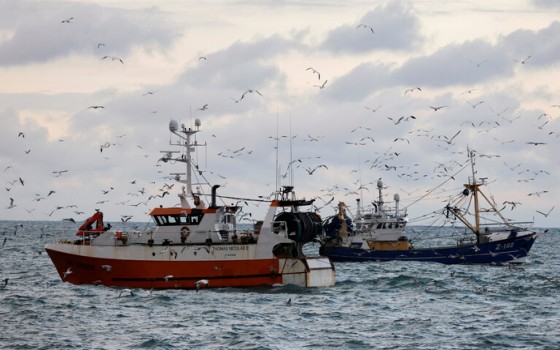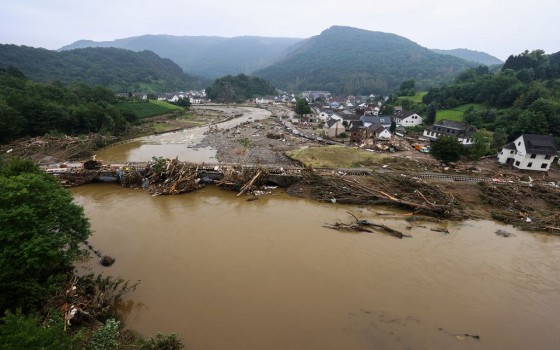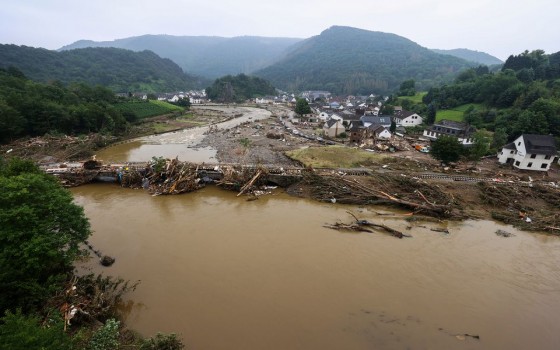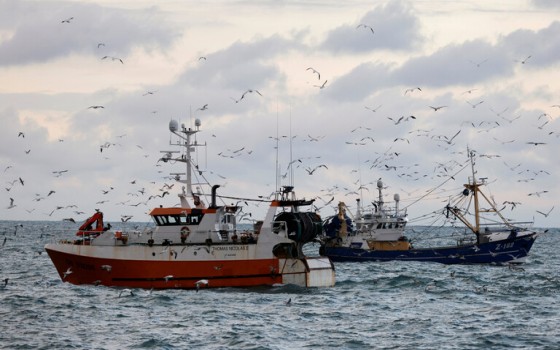
United Nations Secretary General: Current climate policies portend disaster... Fossil fuels are the problem

- Europe and Arabs
- Friday , 16 June 2023 15:31 PM GMT
New York - Brussels: Europe and the Arabs
The Secretary-General of the United Nations has expressed deep concern about the world's attitude to climate, warning that countries are far from the right track to fulfill the promises and commitments related to climate action. According to what was reported by the United Nations news bulletin, of which we received a copy this Friday morning
The Secretary-General held a press conference at the organization's headquarters in New York on Thursday, immediately following his meeting with a group of civil society climate leaders from around the world.
The Secretary-General warned against undermining the climate agenda and increasing gaps in climate action at a time when action should be accelerated.
He drew attention to the fact that current policies will cause global temperatures to rise by 2.8 degrees Celsius by the end of the century, compared to the pre-industrial era. Which he said spelled disaster.
Despite this, the Secretary-General said that limiting the global temperature rise to 1.5°C is still possible. But it will require a 45 percent reduction in carbon emissions by 2030.
He emphasized that it was time to get up and get up.
The Secretary-General's meeting with civil society leaders came ahead of the Sustainable Development Goals and Climate Ambition Summit in September and COP28 in the United Arab Emirates in November.
The Secretary-General said that he emphasized in his discussions with civil society leaders today that there is much work to be done and that we must not sit idly by:
"Now must be a time for ambition and action. I look forward to welcoming actors and innovators to the Climate Ambition Summit in September. The world is watching - and the planet cannot wait."
Fossil fuels are the problem
To help limit the rise in global temperature to 1.5°C, the Secretary-General has indicated that he has proposed a climate solidarity pact to urge all major emitters to make additional efforts to reduce them; Wealthier countries support emerging economies in doing so.
He said that developed countries should work towards zero emissions by 2040, and emerging economies by 2050.
The Secretary-General stressed that the problem was not fossil fuel emissions, but fossil fuels themselves.
A message of hope and encouragement
The Secretary-General emphasized that the solution to this problem is clear: "The world must phase out fossil fuels in a fair and equitable manner, and promote investment in the transition to renewable energy."
The Secretary-General said he understands that the transition to clean energy will not happen overnight, noting that the transition plans are precisely to provide a roadmap for an orderly process that ensures affordability, access and energy security.
He called on all fossil fuel companies to submit new, credible, comprehensive and detailed transition plans - fully in line with the recommendations of the Special High-Level Panel on Net Zero Pledges.
On 31 March 2022, the Secretary-General established a High-Level Panel of Experts on Net Zero Commitments by Non-State Entities - including businesses, investors, cities and regions - and accelerating their implementation.
For financial institutions that have already begun the process of transitioning from fossil fuels to renewables, the Secretary-General has a special message of hope and encouragement: "Don't be relentless in the face of attacks on progress in the transition. You're doing the right thing. Keep moving."












No Comments Found